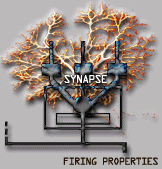 diseño de experimentos para identificar modelos
diseño de experimentos para identificar modelos diseño de experimentos para identificar modelos
diseño de experimentos para identificar modelos
Definición: CAD/Chem is a data-driven system which can acquire What-If knowledge from formulation data. Obviously, the accuracy of CAD/Chem's predictions and designs depend on how rich and informative the available data. Since experiments are essential means of collecting data, the design and analysis of experiments are considered to be an integral part of the CAD/Chem system
. In general, more data does not necessarily imply better predictions and designs. The data, however, must serve specific design goals, e.g., improving certain product properties. One simple yet intuitive approach to collect informative data is to start from a control formulation and explore the effect of perturbing its ingredients in a systematic way. The exploration process can be performed either in the lab or in the context of an evolutionary operation, as suggested in Box and Draper (1969). The Design of Experiments (DOE) module of CAD/Chem can assist users in generating a list of experimental formulations that cover the design neighborhood of control formulations.
There are several general-purpose techniques for the design of experiments, see Montgomery (1991). The DOE module of CAD/Chem supports the following general-purpose techniques:
Central Composite Design Face-Centered Composite Design Box-Behnken Design Simplex Design Equiradial Design Random Design
Formulation experiments, however, must meet certain constraints on the levels of ingredients. Those constraints cannot be handled by the general purpose techniques. Therefore, in addition to general-purpose designs, the DOE module of CAD/Chem can generate experimental formulations which meet the following design constraints:
Simplex Centroid Design Simplex Lattice Design Hybrid Design
19.may.2000
Pulsar tecla de vuelta
Glosario de Carlos von der Becke.